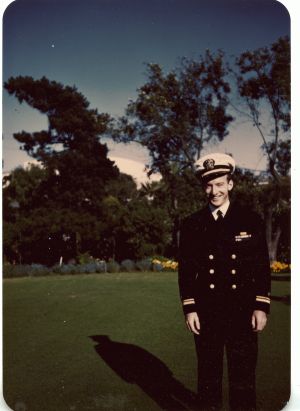
Introduction
By Kerry Ahearn
The Academic Inquirer headline would read: “Historian Caught Writing Fiction!” Quite a number of citizens in the Oregon State community remember William Appleman Williams, and many who knew him well had the same reaction to hearing about Ninety Days Inside the Empire: “Bill Williams wrote a novel?” “Is it a historical novel?” Williams as a historian sought to construct a kind of narrative of America’s wayward development, but his method was persuasive exposition, not narrative itself, so to find that he produced an extended piece of fiction is to discover a new way to understand him, his sense of himself, his intellectual development and, by implication, his views on where the boundaries of effective history are. He wrote this story in the 1980s, and progressed far enough to show it to his agent, Gerald McCauley, to some of his colleagues, and in 1987 to Gore Vidal, who is said to have remarked that it would make a better movie than a novel. For whatever reasons, Williams did not revise to the point where he might aggressively seek to publish.

William Appleman Williams, circa 1940s
From the William Appleman Williams Papers, Special Collections, Oregon State University
Why a novel? Historian Walter Prescott Webb remarked that fiction thrives in the areas of the “semi-known” which have compelling interest but no objective access. Novelist Flannery O’Connor provided a necessary footnote, that the social sciences, which we have come to regard as objective and authoritative in representing human behavior, have severe limits, and that the province of imaginative literature begins where all such assessments and prescriptions end. Williams implied agreement in his essay “History as a Way of Learning”: “Every sane adult has such an inclusive conception of the world [Weltanschauung] which cuts across and subsumes personal motives, group interests, and class ideologies. This point needs to be emphasized, for in recent years many historians have relied extensively on the psychology of the irrational in developing their analyses and interpretations.” He added another crucial point in “The Age of Re-Forming History” when he contrasted primary-source research and social-science categorizations as evidence for conclusions: “whatever else psychology reveals (and this is considerable), it cannot tell us how the world appeared in the consciousness of the actors—what they thought they were doing.” Rendering consciousness is the key. Some of the reasons why Williams gave fictional treatment to the material in Ninety Days Inside the Empire will become obvious to its readers, but the first principle might be called internalization: the inward turn of narrative in the modern novel is a way of rendering consciousness as primary-source material. In this novel, narrative perspective is detached and yet accomplishes a kind of intimate omniscience. There is a clear sense of a controlling intelligence which sometimes describes situations from the outside, but from the opening pages the dominant subject is individual experience, how consciousness itself makes community: how ideas influence personal and communal choices.
Table of Contents
- Maggie and Mr. Hank
- The Reverend
- Squalls Along the Flight Line
- Flying Home to Church
- A Visit with The Judge
- Communion
- Afterthoughts
- Monday Morning With The Admiral
- Into the Dining Room
- On Toward Walking the Streets
- Glimpses of An Election
- The Dream and The Reality of Violence
- The Admiral Loses More Than a Few Good Men
- Down That Lonesome Road

